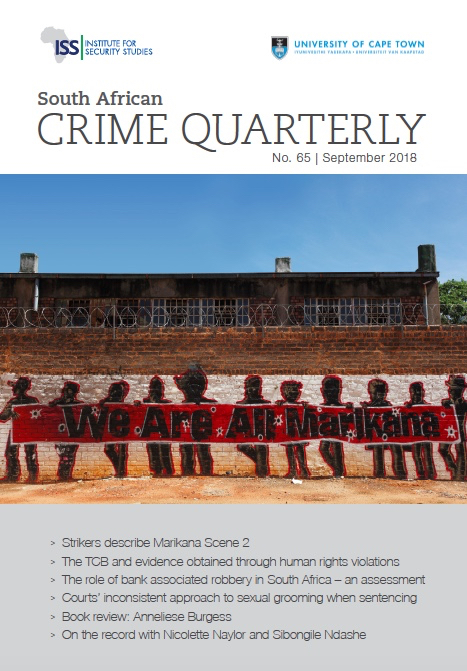On the Record: Nicolette Naylor & Sibongile Ndashe
DOI:
https://doi.org/10.17159/2413-3108/2018/i65a5574Abstract
Recent local and global developments have turned the spotlight on the role of law in addressing sexual harassment in the workplace. Almost four decades after feminist legal scholars pushed for law that recognises that sexual harassment constitutes a form of discrimination that is legally actionable, it is important to take stock of the success and limits of the law. In a context where the law is increasingly accused of complicity in shielding abusers by (mis)applying sexual harassment policies to exonerate the perpetrators or fail to hold institutions to account where they claim that their hands are tied because complainants do not want to lay formal complaints. Nicolette Naylor (Director, Ford Foundation for Southern Africa) and Sibongile Ndashe (Executive Director: The Initiative for Strategic Litigation in Africa [ISLA]) discuss the role of the law against the backdrop of the successes of campaigns like the #MeToo movement that encourage survivors to speak out outside of the by unmasking and publicly naming perpetrators. The conversation was originally presented as an ISLA Conversation between Nicolette and Sibongile on 10 July 2018 in Johannesburg.
Downloads
Downloads
Published
Issue
Section
License
Copyright (c) 2018 Author and Institute for Security Studies/UCT

This work is licensed under a Creative Commons Attribution 4.0 International License.
SACQ is licenced under a creative commons licence (CC BY) that allows others to distribute, remix, tweak, and build upon your work, even commercially, as long a they give appropriate credit, provide a link to the license, and indicate if changes were made. They may do so in any reasonable manner, but not in any way that suggests the licensor endorses you or your use.
Copyright for articles published is vested equally between the author/s, the Institute for Security Studies and the Centre of Criminology (UCT).




.png)